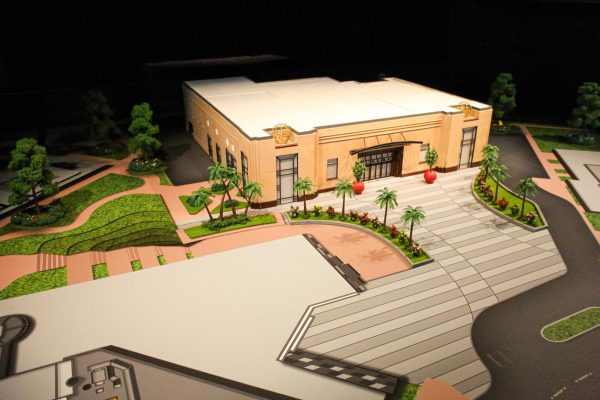Faculty Column: Becoming good stewards
Biola’s Creation Stewardship Committee explores the university’s stewardship and invites students to help.
September 21, 2011
In the fall 2008 issue of Biola Magazine Rafe Payne, John Bloom and Garrett DeWeese all speak out to care for God’s creation in an article titled, “The Greening of Evangelicals.” Last year the rapidly growing environmental science major was born, and this year there is a university-wide Creation Stewardship Committee now coming together with staff, students and faculty, working to see how Biola can further care for the rest of God’s creation as we pursue Biola’s mission.
Committee name intentionally chosen
A first stab at a name for this committee was simply the Green Committee. Although that name might stick due to its brevity, the official name is the Creation Stewardship Committee, and thought went into that name. This committee will be dealing with creation — something God made — not “green” issues of politics and political parties. And creation is a rather large topic, so this committee will be looking at many aspects of the workings of Biola.
Exploring stewardship in areas other than money
Stewardship, an important piece of the name for this committee, has often been synonymous with good financial management in evangelical circles. Believing others here at Biola are better trained to do finances, this committee won’t be looking at improving that, although we’d be happy to find ways to save money and care for God’s creation simultaneously.
We will be looking at stewardship as more than careful finances because we are all called to be stewards of much more than money. We are all called to love our neighbors and exercise good stewardship of the rest of creation. Some people would call this paying attention to the triple bottom line: people, planet, profit. Using all three bottom lines we’ll look at Biola’s activities and campus from financial, environmental and justice-centered viewpoints.
For example, what would good stewardship of paper look like? We could look at ways to reduce paper use, the cost and workability of recycled paper, discover where the paper was manufactured, what parts of God’s creation were involved including landscapes and people and how both fared in this paper making process. We may find out the least expensive paper for us has hidden environmental and social costs for others — and then we’ll wrestle with how to use copy paper while loving our neighbor and caring of the rest of God’s creation too.
Examples of Biola’s stewardship
Our first order of business will be to find out all the things Biola does right, and there are many. Did you know Biola has a clean natural gas burning cogeneration plant on campus that produces most of our electricity? Even better, this process uses the excess heat, what would go “out the smokestack,” to heat and cool buildings. You may know Biola staff use a lot of non-toxic green cleaners, Bon Appétit in the Caf is nationally known for its environmental care, we have the car share WeCar program, an organic garden on campus and commuter incentive and recycling programs. So we won’t need to start these from scratch.
Secondly we’ll need to assess what changes could occur to be better stewards; to improve upon what is already in place, and implement new initiatives to care for our neighbors and the rest of creation. Although it may be humbling, some secular institutions around us shine in these areas and make money, and our university “rivals,” Azusa Pacific University and Point Loma Nazarene University, have much more advanced recycling systems. We’ll all be learning as we move forward.
Committee invites student involvement
Lastly, this ministry will be more successful with everyone on board. This committee will not lead Biola into tree hugging sessions, nor political agenda that would take away from giving all glory to God. There’s solid biblical reasons to be wise with money, and care for our neighbors and the rest of creation too. If this ministry particularly interests you faculty, student or staff, you could serve on the official committee. There is an informal working group associated with it that is open to all. Come join us to move Biola toward even greater stewardship: loving our neighbors and the rest of God’s creation.






